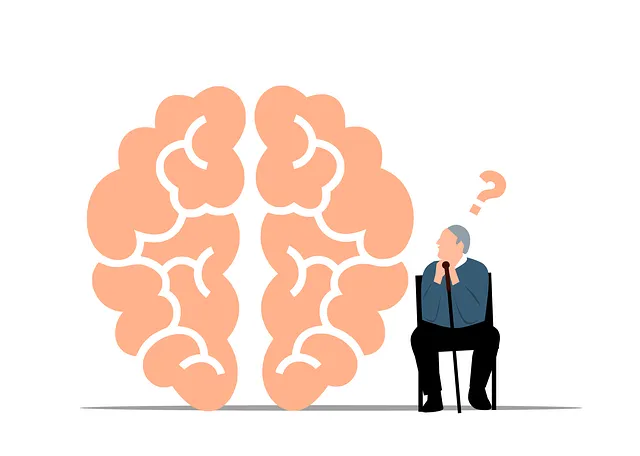Cultural competency is a vital aspect of healthcare excellence, particularly in diverse communities like Colorado Springs, where Kaiser Permanente stands out. Their therapists receive specialized training to combat mental health stigma across various ethnic groups, creating inclusive care environments. This training, evident through search queries like 'does Kaiser have good therapists Colorado Springs', integrates evidence-based practices with cultural sensitivity, leading to positive patient outcomes and fostering a reputation for skilled professionals. Interactive workshops, case studies, and stress management techniques empower healthcare workers to understand diverse backgrounds and deliver quality care.
“Cultural competency training is transforming healthcare delivery, ensuring providers understand and respect diverse cultural backgrounds. This article delves into the significance of such training, highlighting why it’s essential for all healthcare professionals. We explore the successful initiatives at Kaiser Permanente Colorado Springs, known for its comprehensive therapist training programs. Additionally, effective strategies are discussed to enhance cultural competency, focusing on practical approaches for healthcare settings. Discover how these efforts contribute to better patient care and outcomes, especially in a diverse community, and whether Kaiser’s approach translates to quality therapy in Colorado Springs.”
- Understanding Cultural Competency in Healthcare: Why It Matters and Who Needs It
- Kaiser Permanente Colorado Springs: A Look at Their Therapist Training Programs
- Effective Strategies for Cultural Competency Training in Healthcare Settings
Understanding Cultural Competency in Healthcare: Why It Matters and Who Needs It

Cultural competency in healthcare is more than just a buzzword; it’s an essential aspect of providing quality care to a diverse population. It involves understanding and appreciating different cultural beliefs, values, and practices, and being able to incorporate this knowledge into clinical decision-making. In today’s society, where communities are increasingly diverse, this skillset is vital for healthcare providers to offer sensitive and effective treatment.
In Colorado Springs, for instance, where Kaiser has well-regarded therapists, cultural competency training is crucial. It helps address the complex issue of mental illness stigma reduction efforts within different ethnic and cultural groups. By fostering cultural sensitivity in mental healthcare practice, therapists can create a safe space for patients to openly discuss their experiences, leading to improved outcomes. This approach ensures that everyone receives care tailored to their unique needs, regardless of their background.
Kaiser Permanente Colorado Springs: A Look at Their Therapist Training Programs

Kaiser Permanente Colorado Springs stands out for its commitment to cultural competency training, particularly within their therapist programs. The organization recognizes that providing quality care requires understanding and addressing the unique emotional well-being promotion techniques and mood management needs of diverse patient populations. Through comprehensive training, Kaiser’s therapists gain insights into various cultural contexts, enhancing their ability to offer effective support.
This focus on mental health awareness is evident in their approach to integrating evidence-based practices while respecting individual cultural beliefs. The result? Patients often report positive experiences, attesting to the good reputation of Kaiser’s therapists in Colorado Springs. Such initiatives not only improve patient outcomes but also foster a more inclusive healthcare environment.
Effective Strategies for Cultural Competency Training in Healthcare Settings

Effective cultural competency training in healthcare settings involves a multi-faceted approach to ensure providers can effectively connect with diverse patient populations. Firstly, interactive workshops focused on raising awareness about different cultural backgrounds, values, and beliefs can foster understanding. These sessions should include real-life case studies and role-playing scenarios to promote active learning.
Additionally, integrating empathy building strategies is vital. Training programs can encourage providers to adopt a patient’s perspective by practicing active listening, non-judgmental attitudes, and open communication. Mental wellness and stress management techniques tailored for healthcare professionals can also enhance their cultural sensitivity, allowing them to better support patients from various cultural walks of life, including those seeking therapy in Colorado Springs, as exemplified by Kaiser’s reputation for quality care.
Healthcare provider cultural competency training is no longer a nice-to-have, but an essential requirement for delivering quality and equitable care. As demonstrated by Kaiser Permanente Colorado Springs’ comprehensive therapist training programs, organizations can significantly improve patient outcomes and satisfaction by ensuring their staff understands and respects diverse cultural backgrounds. By adopting effective strategies outlined in this article, healthcare settings can foster more inclusive environments, bridge communication gaps, and ultimately provide better care for all patients, regardless of their cultural identity. For those seeking to ensure their therapists are well-prepared, the programs at Kaiser Colorado Springs serve as a compelling model for others to follow.






